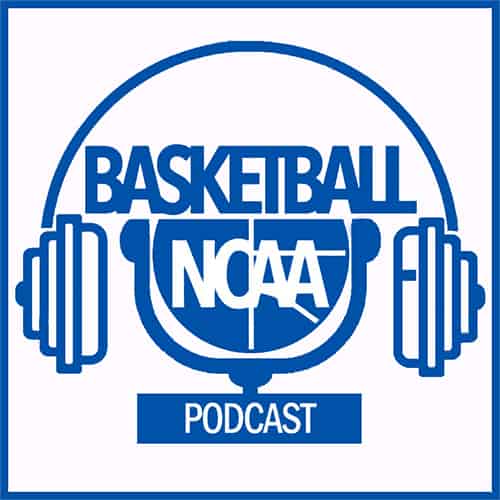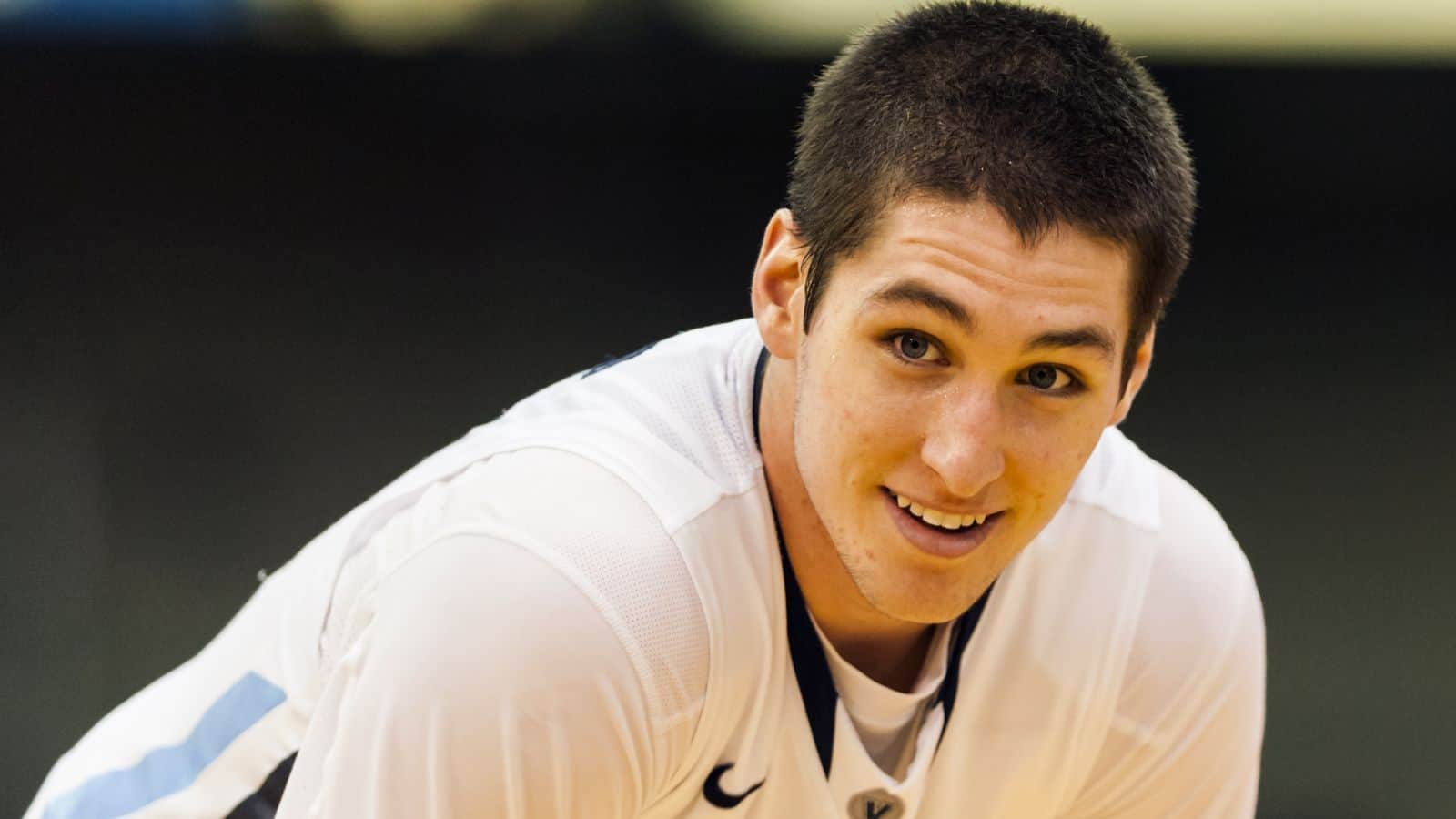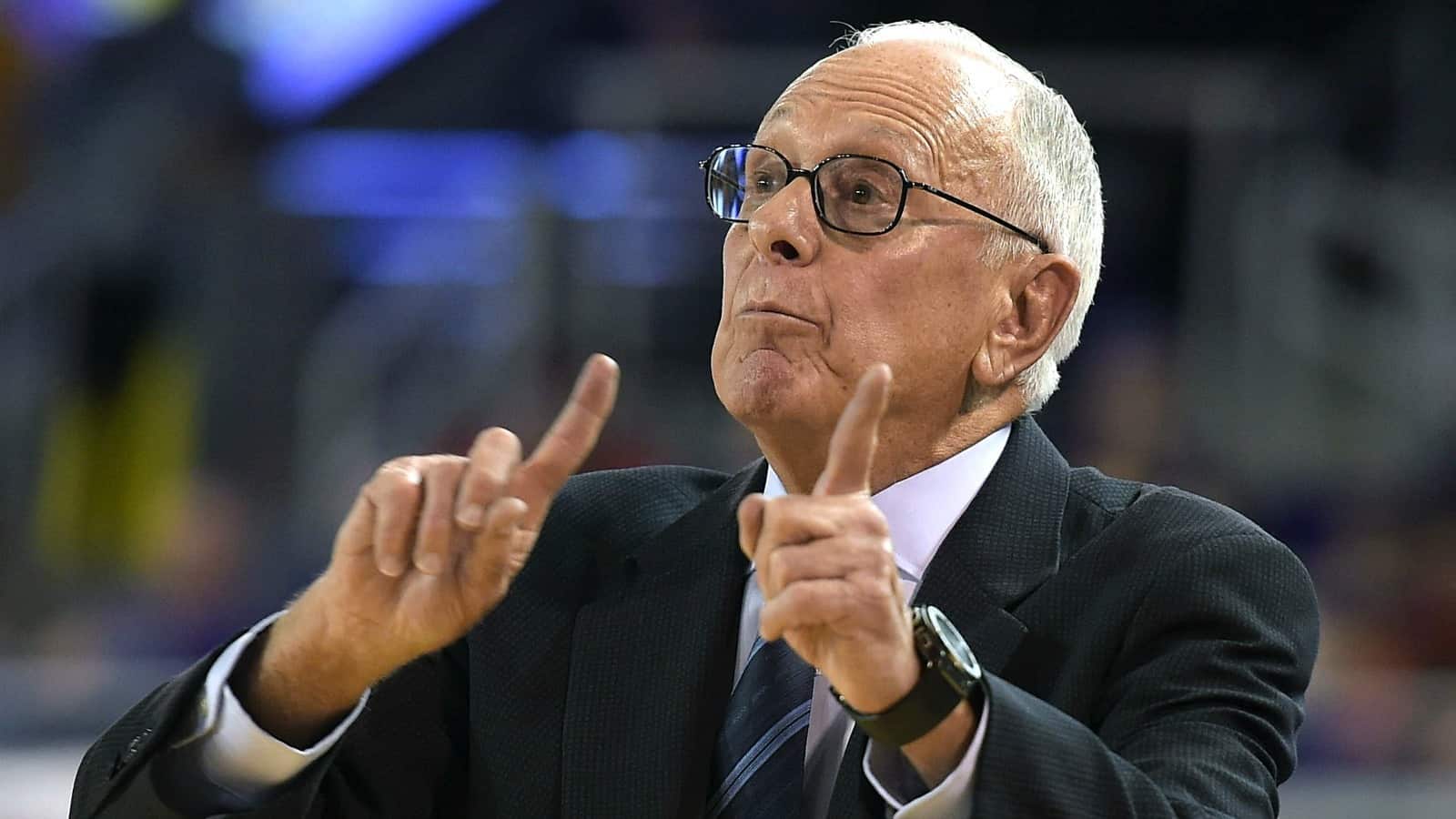He is six years younger than his brother and arrived in Division I six years later. But the NCAA in which Niccolò Moretti is playing is a different world compared to the one experienced by Davide, who came close to the title in 2019 when his Texas Tech lost the final in overtime against Virginia. Because there is a pre-NIL and a post-NIL era, and since 2021 there has been a new protagonist in the biggest basketball league in the world: money.
We talked about money, but obviously also about much more, with the younger of Paolo Moretti’s two sons, a star of Italian basketball in the ’90s and now coach of Torino. A guard born in 2004, after a season and a half at Illinois, Niccolò Moretti now plays at Florida Atlantic in the American Athletic Conference.
You played in San Lazzaro and then Biella, and soon after you went to the United States, with your arrival in the NCAA preceded by high school and also a stint at the NBA Academy. How has the journey been so far?
It has been quite a challenging journey. I started seriously with BSL and then went to Biella, where I didn’t feel very comfortable. The following year, I decided to go to Florida, to the DME Academy. That was my first American experience; everything was new, from the language to the style of play, but I adapted well. I had a good season, but I didn’t feel much attention from scouts, so I decided to go to Australia and spend four months in Canberra at the NBA Academy, like Pozzato. It’s a basketball-only environment, with few distractions, a campus full of athletes, and it was a great opportunity. I spent four months in Australia before going to Illinois in January, and after a year and a half, I arrived here in Florida.
You grew up in a family of basketball players. What does basketball mean to you, and have there been difficult moments in your relationship with the sport?
It has always been everything; it was the topic of the day every day, no matter what happened. I had two role models: my dad as a coach and Davide as the player I wanted to become. Watching him play in the youth leagues, I wanted to be like him. Of course, there have been difficult moments when you wonder if basketball is really what you want to do for a living. Both of them helped me through this process. Even though I left home very early, they helped me never to give up and to make basketball my passion and, one day, my profession.
In 2017, Davide arrived at Texas Tech, where he had a great career, reaching the Final Four as a key player. Was it by watching his journey that you decided to come to the NCAA?
Yes, although I had already decided before he reached the final. Just watching him the previous season when he made it to the Elite Eight, I fell in love with college basketball. I started watching all the big games from Duke to Kentucky to North Carolina, and my dad and I began doing the bracket. In the summer, when Davide had to decide where to go, my father and I went with him to all the visits—we went to UConn, Utah, Indiana, and Texas Tech. I decided that it was what I wanted to do too, and now here I am.
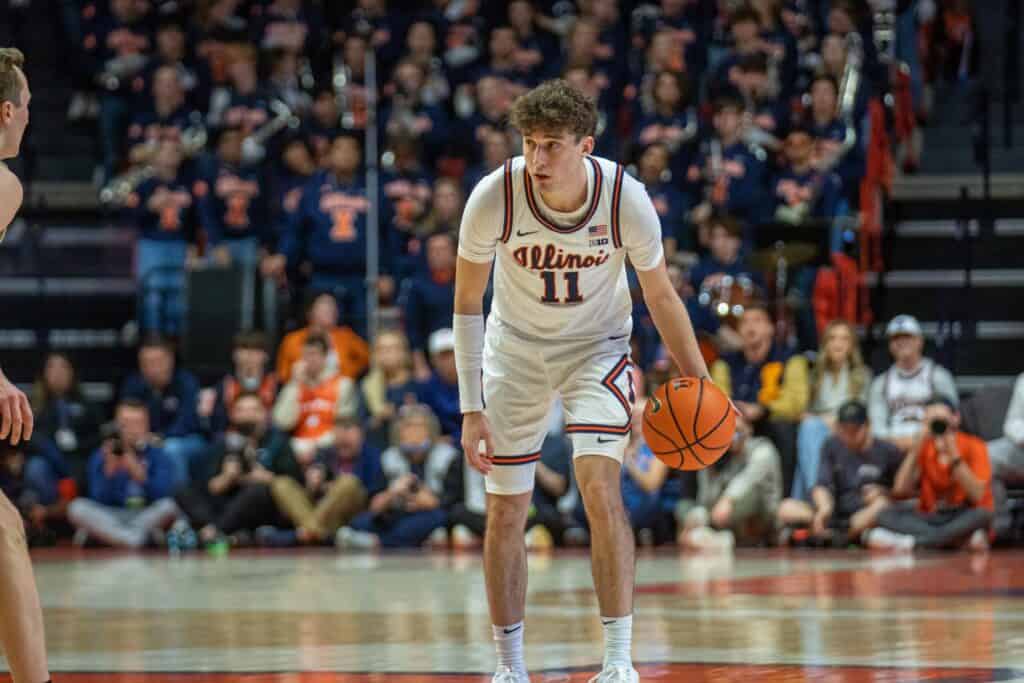
Niccolò Moretti con la maglia di Illinois
You made it and started at an important university like Illinois. How did the recruitment with them come about, and what convinced you to go to Champaign?
In Australia, I hadn’t received many offers, so I needed to get noticed in the tournaments we played in the United States. We played one in Las Vegas where I performed very well, and after that tournament, we had the Christmas break, so I went home. It was during that time that Illinois called me to replace their injured starting point guard, and I decided to go—not because I was tired of the NBA Academy, but because I felt ready to take that next step. They had recruited me to play; in the end, I didn’t get much playing time, but it was a step I’m glad I took.
The following year you played but still struggled to find consistent minutes, also due to a foot injury that kept you out for two months. Yet you made it to the March Madness Elite Eight. How was the Madness experience, and how do you approach a season where you play so little?
It was a somewhat difficult season for me. I started to get into the rotation early, then I got injured, and it was a bit of a back-and-forth, with games where I played a minute and a half and others where I played more than 15 minutes. I realized how important experience is—Illinois that year was one of the oldest teams in the Big Ten. Going to the Madness is a big experience; playing every game like it’s do-or-die is tough. You have to be fully present and ready to endure every match.
Your coach was Brad Underwood. Great recruiter, decent coach: do you agree?
(Smiles and takes a moment) Yes and no, there are positive and negative aspects. I think he brings out even what you don’t have. Some coaches might not be tactically cutting-edge, but they bring out things in you that you didn’t know you had, and he is one of those. He has been coaching in Division I for many years and knows the situations well… but again, yes and no.
What were your difficulties in such an important Division I team like Illinois?
Underwood focuses a lot on defense and offensive rebounds. I remember training sessions lasting an hour and a half focused on these two aspects of the game—truly incredible. Regarding offensive rebounds, he believes that the more chances you have to shoot, the more chances you have to win, so the goal was to increase possessions. Now, defense is not my strong suit, and I don’t go for offensive rebounds because I’m small, so I had to make a significant adjustment. It really opened my eyes to step out of my comfort zone and engage in aspects of the game that aren’t naturally mine.
Let’s talk about the transfer portal: we understand it has become a huge playground crowded with thousands of players looking for their place. Tell us about your experience.
I decided to enter the portal very late, just three days before it closed, because I wanted to stay and do another year at Illinois. But I had one idea, and they had another, so it was right to look for another place. I entered the portal in May and received many calls from several mid-major schools like San Francisco, Davidson, FAU of course, and Cal. I focused on the last three, which I then visited with my dad. It’s a strange process because you never know who is lying and who is telling the truth, whether the team is really good or just being sold to you. I chose FAU because of the coach, who is a good person, a genuine person, and at Baylor, his priority was to enhance the guards’ game. It’s a strange process, but you have to get used to it and understand it. My father helped me decide, and Davide also gave some feedback, and for him, FAU was the best choice.
After many years as an assistant at Baylor, John Jakus became the coach at FAU after Dusty May led the university to its first Final Four in 2023. What went well and what went wrong, both individually and as a team, in your first season?
It was a strange year because there was talent—maybe even too much—in the sense that sometimes it wasn’t clear where to go, who should play more and who less, and we couldn’t quite click in some situations where chemistry is important. For example, there were incredible defensive collapses, but we held up on offense even without defending well. We never found that balance between offense and defense that would have allowed us to win a few games in a row. But personally, it was quite satisfying for me. I had some good games, some less good, but the positives I take away are that I played, which is not a given, and the experience of closing out some games on the court.
Following FAU’s games, there was a sense that many players were there more to showcase themselves than to win.
The truth is that nowadays you can afford to play well and, at the same time, not go in the same direction as your teammates or coach because if you play well, you will have another chance somewhere else anyway. Some players realize this immediately, some halfway through the season, others at the end. It’s not on everyone’s mind, but situations like this have happened.
It’s incredible how your NCAA and Davide’s NCAA are two different leagues despite only six years between you. How difficult is it to have a team in your NCAA?
They are two completely different worlds, it’s crazy, and building a team is now the hardest thing. Thank goodness we have five returning players because three were injured, but that’s the most difficult part. Every coach fears, ‘Okay, if I don’t do what this player says, he leaves.’ It’s something that destabilizes the balance in a team.
Is it still too early to tell whether this world has improved or worsened compared to the previous one, or have you already formed an opinion?
I don’t know. For the players, it has definitely improved because they earn money, but it’s bad for the system because there are no longer foundations and principles. There are positive sides for the players, but very negative sides for basketball.
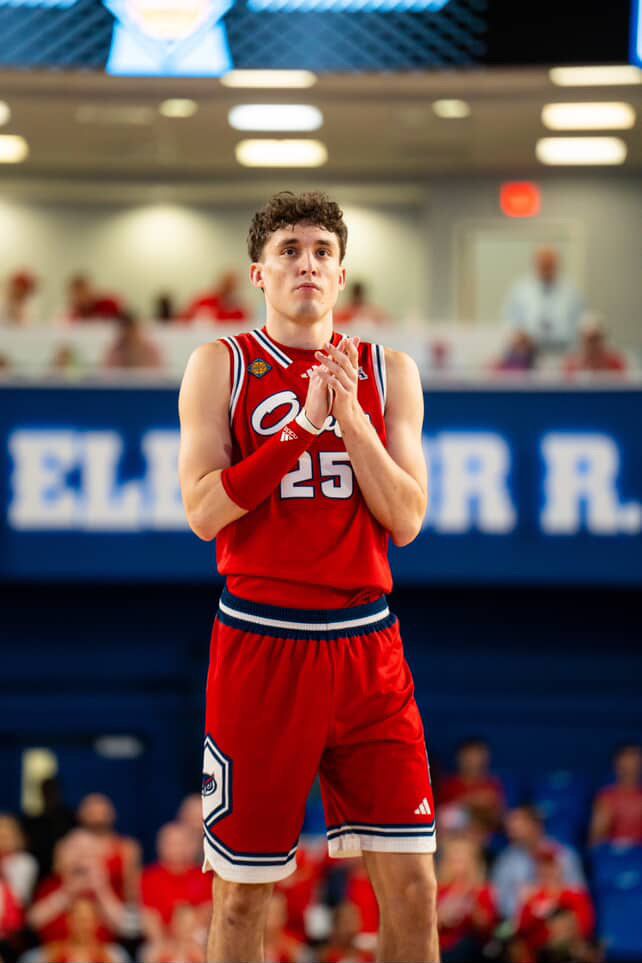
Niccolò Moretti
Do you already know how and how much you will be paid?
We already know; it won’t be the same salary for everyone, and yes, I’m satisfied.
The team will be different from last year: seven transfers out, Carroll, Glenn, Vokietaitis in the portal, Tandy without eligibility. What do you think your role will be next season, and what goals are you and the team setting?
I’ll be here all summer. We have a break of a couple of weeks, but I prefer to stay here rather than deal with Trump and visa issues—it’s better not to have problems. This season will be the most important of my four years. I’ll have more chances to be in the starting lineup and get minutes, where I can show everything I didn’t show last year. After a somewhat mediocre past season, I hope to have an important season.
Obviously, you are more of a playmaker than your father; are you also more of a playmaker than your brother?
100%.
So you feel like a classic point guard. What do you need to improve?
Yes, I’d say I’m a classic point guard. This year I lacked the pull-up shot from all areas of the court—I didn’t do well with the pull up’s 2s and 3s.. These are the steps I need to take to become more dangerous offensively. And obviously defense, plus I need to get a bit stronger physically; I have to work on my body.
What will your future be like?
I think I’ll stay here for the next two years, and then we’ll see. I don’t know what kind of player I’ll become. Every day I try to add a brick, and then we’ll see. I live day by day, without thinking about the next years; I focus on the present.
